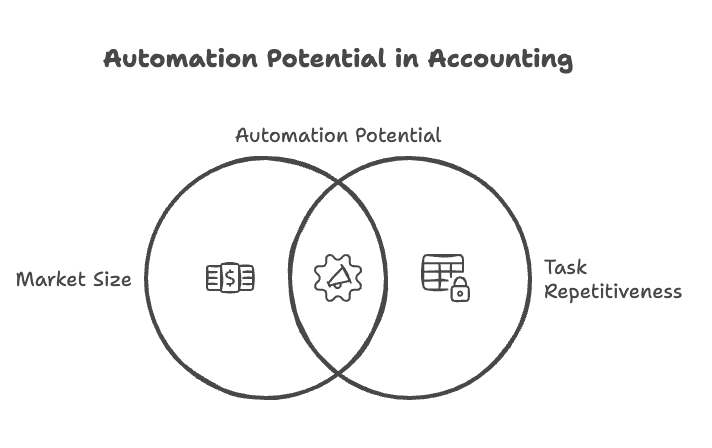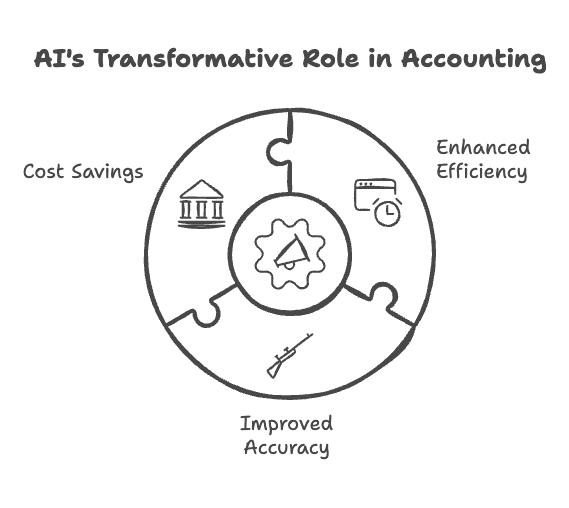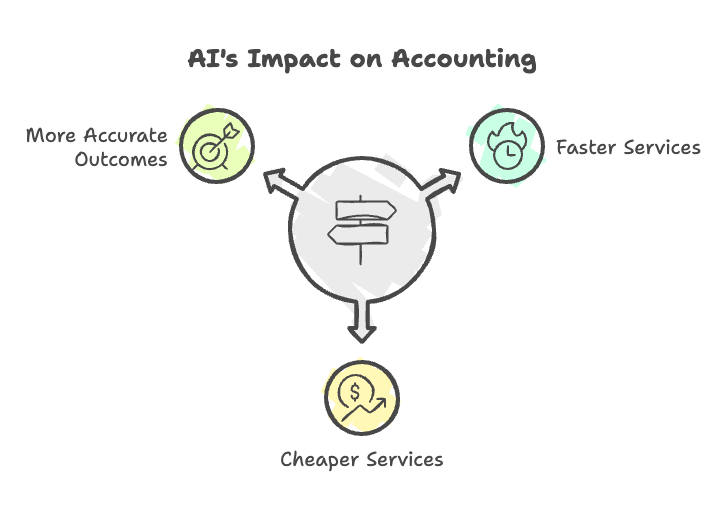The Future of Accounting: How AI is Transforming the Industry
AI is revolutionizing accounting.

In today's fast-paced world, the accounting profession is undergoing a significant transformation. With the advent of AI and automation, the landscape of accounting is shifting dramatically. This article delves into the current state of the accounting industry, the challenges it faces, and how AI is poised to revolutionize the field.
The Current State of Accounting
A Profession Under Pressure
Accounting, once considered a stable and evergreen profession, is now facing unprecedented challenges. The demand for accounting services is on the rise, yet the number of professionals entering the field is dwindling. This paradox is creating a bottleneck, where the workload is increasing, but the workforce is not keeping pace.
The Retirement Wave
A staggering statistic reveals that 75% of Certified Public Accountants (CPAs) are set to retire in the next decade. This mass exodus is not being matched by new graduates entering the field, leading to a significant shortfall in the workforce.
Decline in Numbers
Between 2019 and 2022, the number of accountants dropped by 16%. This decline is alarming, considering the increasing complexity of tax laws and the growing demand for accounting services.
The Market Dynamics
A Huge Market
Despite the decline in professionals, the accounting market remains vast. With over 1.5 million accountants and auditors, and more than three million individuals in related positions, the industry represents a significant portion of the economy.
The Repetitive Nature of Accounting
Accounting is a field characterized by repetitive and manual tasks. This makes it ripe for automation, as AI can handle these tasks more efficiently, freeing up professionals to focus on more value-added activities.
The Role of AI in Accounting

Why Accounting is Ripe for AI
AI is particularly suited to accounting due to the repetitive nature of the work. Unlike the legal profession, which is text-heavy, accounting is quantitative, dealing with numbers and data. This makes it an ideal candidate for AI-driven automation.
The Challenges of AI Adoption
Despite its potential, AI adoption in accounting has been slower compared to other fields. This is partly due to the high stakes involved, as accounting requires 100% accuracy. Firms are cautious about implementing AI solutions, ensuring they maintain the gold standard of service.
Overcoming Business Model Hurdles
The traditional business model of accounting firms, which relies on billable hours, poses a challenge to AI adoption. However, the industry is gradually shifting towards fixed-fee engagements, driven by competitive pressures and the need for efficiency.
The Benefits of AI in Accounting
Enhanced Efficiency
AI can significantly enhance efficiency by automating data collection and ingestion. This allows accountants to focus on more strategic tasks, improving overall productivity.
Improved Accuracy
AI excels at handling unstructured data, making it ideal for tasks such as generating journal entries and accounting reports. This reduces the risk of human error and ensures greater accuracy.
Cost Savings
By automating routine tasks, AI can lead to cost savings for both firms and clients. This is particularly beneficial in an industry that traditionally charges by the hour.
The Future of Accounting Software

Historical Context
Historically, accounting software has been outdated, with many firms relying on legacy systems. However, the advent of AI is changing this, offering more sophisticated solutions that can handle complex tasks.
The Shift to AI-Driven Solutions
AI is enabling a new generation of accounting software that can perform tasks previously handled by large teams of accountants. This shift is making it possible for firms to operate more efficiently and cost-effectively.
Conclusion
The accounting profession is at a crossroads. With a looming retirement wave and a declining workforce, the industry is under pressure to adapt. AI offers a solution, providing the tools needed to automate repetitive tasks and improve efficiency. As the industry embraces AI, we can expect to see a transformation in how accounting services are delivered, leading to faster, cheaper, and more accurate outcomes for clients.

FAQs
How is AI changing the accounting profession?
AI is automating repetitive tasks, allowing accountants to focus on more strategic activities. This is leading to greater efficiency and accuracy in the profession.
What challenges does the accounting industry face with AI adoption?
The main challenges include ensuring 100% accuracy in AI solutions and overcoming the traditional business model of billable hours.
How can AI improve accuracy in accounting?
AI excels at handling unstructured data, reducing the risk of human error and ensuring greater accuracy in tasks such as generating journal entries and reports.
What is the future of accounting software?
The future of accounting software lies in AI-driven solutions that can handle complex tasks, offering greater efficiency and cost savings for firms and clients.
How can firms overcome the challenges of AI adoption?
Firms can overcome challenges by gradually shifting towards fixed-fee engagements and ensuring that AI solutions maintain the gold standard of service.